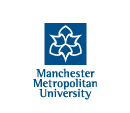
Location: Brooks Building, Manchester Metropolitan University
Date: Wed 27th – Thurs 28th July 2016
A two-day workshop hosted by MMU Medical Humanities, Aesthetics and Creativity and Disability Networks
Convenors: Dr Lucy Burke (l.burke@mmu.ac.uk) and Dr Anna Bergqvist (a.bergqvist@mmu.ac.uk)
Creativity is an area that many research councils and funding bodies recognise as a focal point for transformative research across traditional subject boundaries to advance medical knowledge and well-being. In 2014 Sir Peter Bazalgette, Chair of the Arts Council made the following statement to the editors of the The Lancet: “It’s common sense, isn’t it, that the arts make us feel better. We now have the beginnings of evidence to prove it too. But we need to do more work to persuade health leaders this could be a worthwhile investment. The Arts Council will fund more research and welcomes partnerships in all fields. With new partnerships and rigorous scientific methodology, the benefits of art and culture to health and wellbeing could be documented and measurable for future generations.”[1] The assertion that the benefit of the arts lies in the capacity of ‘rigorous scientific methodology’ to document and valorise the effects of our interactions and participation with them raises a number of questions. Richard Smith, former Editor-in-Chief of the British Medical Journal, argues in a recent BMJ Blog the need for philosophical conceptual inquiry as applied to medicine on the grounds that scientific methodology alone cannot serve to answer questions like, “What is medicine for?”; indeed science can’t even define the concepts of health and illness.Smith writes: “Is the concept of disease still the best way for medicine to think about what it is trying to do when risk factors become “diseases” and most patients have multiple “diseases”? What can we learn from reflecting on “diseases” like drapetomania (the mental illness that led slaves to escape)? And is it right that healthcare is increasingly consuming resources that could be spent on education, housing, social care, the environment, the arts, and much else?” [2].
We believe that Arts and Humanities research perspectives are crucial in understanding the potential, limits and impact of the arts in relation to questions of human flourishing and that they enable us to open up key areas of debate. These range from the fundamental conceptual problem of what we mean by the arts, to the complex question of what we might mean when we talk about ‘feeling better’. There is also the political question of whether we believe that the value of the arts can or should be measured and translated into either the restorative language of a medical model or the financial language of ‘investment’ and a cost/benefit analysis. By bringing together practitioners and theorists using systems of creativity from different disciplinary backgrounds across the humanities, arts, medicine, health and education, we intend to re-examine and extend the concepts of creativity and value in developing new theoretical approaches in different practice platforms.
This two-day workshop sets out to explore these questions from multi-disciplinary and arts-based perspectives with a particular focus upon the significance of these debates for people with dementia, people with learning disabilities and people with mental health conditions; groups that experience significant levels of social and economic marginalisation, exclusion and abuse. Our aim is to explore the ways in which normative critical conceptual perspectives challenge the implicit or assumed able-ism of current models and measures of ‘value’ and of particular concepts of art, creativity, flourishing, health and wellbeing. We hope that the workshop will open up a dialogue about the ways we might think and argue differently about the benefit of the arts and creativity in these contexts.
The workshop will feature six sessions of 90 minutes each of which will comprise three short, ten-minute position papers by invited speakers followed by a whole group discussion. Each day will conclude with a reflection session/whole group activity. The workshop is free and open to everyone, although places (maximum of 40) are limited. We would like participants to commit to attending on both days in order to develop our dialogue in as meaningful a way as possible. Sessions are provisionally themed as follows:
Day one, 27th July 2016
Creativity and the human: what are the arts ‘for’?
What do we mean by health and wellbeing?
What do we mean by value?
Day two, 28th July 2016
Thinking differently:
Creativity, the arts and dementia
Creativity, the arts and learning disability
Creativity, the arts and concepts of mental ‘health’
Each of these sessions will explore questions of value, creativity, flourishing and ‘well-being’ in the specific context of dementia, learning disability and mental health.
Please register at www.kxregistration.mmu.ac.uk/VCHF2016
________________
[1] The Lancet editorial Volume 383, No. 9923, 2014
[2] Richard Smith, ‘Science’s Need for Philosophy’, BMJ Blog, 8 April 2016.http://blogs.bmj.com/bmj/2016/04/08/richard-smith-medicines-need-for-philosophy/

